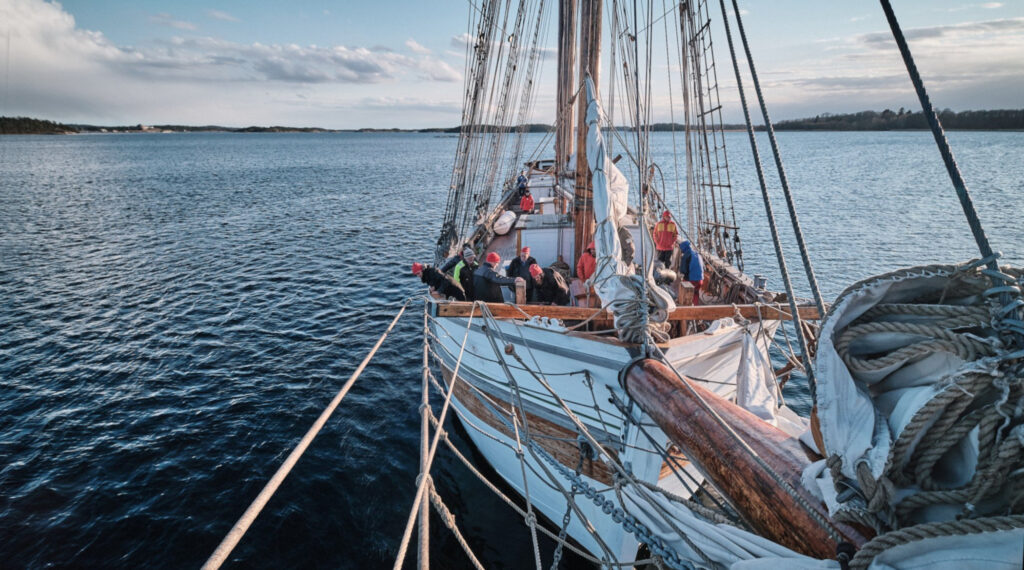French wind power needs legal framework
Lise Detrimont, general delegate of the Windship Association, condemns French tax measures that “have a direct impact on wind power companies”, and calls for “a specific legislative framework to anchor wind power as a viable alternative.”
“Several solutions are being considered in the maritime sector to reduce greenhouse gas emissions from ships. But only one is immediately available and it offers a significant reduction in energy consumption and associated emissions: wind propulsion. This not only reduces greenhouse gas emissions, but also limits underwater air pollution and noise. Wind propulsion is coming of age and 10 French vessels are already in commercial operation and measuring daily the emission reductions achieved, while another 15 are on order.
A booming but still fragile industry
The French shipbuilding industry is dynamically emerging, bringing together shipowners, equipment manufacturers, architects and shipyards. Its potential is huge: it aims for a turnover of €1.6 billion by 2030, with a combined international market of €195 billion by 2050. However, it is still largely based on young, bold companies innovating both technologically and in terms of use. These changes are promising, but require time and investment.
In March 2024, the government and economic players signed a pact to accelerate scale-up in the sector. This pact led to increased funding for research, development and training. But on the ground – or rather, at sea – the question remains: how can we ensure the competitiveness of wind-powered vessels?
A fiscal framework that hinders the sector’s growth
At a time when maritime taxation is evolving to meet budgetary demands, support for sailing vessels is being scaled back: the green bonus intended to facilitate the purchase of these vessels has been halved and tax exemptions reduced. As players in the sailing industry, we understand the need for a collective effort and are willing to do our bit. However, these restrictions directly affect our small and medium-sized enterprises, which are carrying out ambitious ship equipment projects and promoting France as a maritime nation.
Against the background of intense international negotiations, we reaffirm our commitment to a sustainable future. In just three years, we have created 1,100 jobs, and that is just the beginning. We consciously chose to fly our ships under the French flag. But if we want to go beyond intentions, models and glossy images, we need to mobilise more resources. Our companies are now doing everything they can to reduce greenhouse gas emissions to avoid irreversible climate change.
Funding for sailing cargo
Financing solutions exist and should be used to support our sector. In particular, we ask that eligible energy-saving certificates be awarded to sailing vessels calling at a French port, and that part of the revenue from the emissions trading scheme be earmarked for the industrialisation and marketing of sailing projects.
If there is one sector that offers both environmental and economic opportunities, it is sailcargo. Rather than a step backwards, sailcargo represents climate knowhow, emissions reduction and adaptation (sustainability of maritime transport even in the event of an energy crisis).
More than just support, a specific legislative framework would allow securing investment, ensuring the long-term visibility of industry players and firmly establishing marine propulsion as a viable and competitive alternative. A law could clearly define and recognise wind propulsion as an important green industry sector, especially for the French maritime fleet; provide fiscal incentives for the adoption of this technology, and guarantee privileged access to financing mechanisms for the energy transition. The aim is not only to encourage innovation and industrialisation, but also to position France as a world leader in carbon-free shipping. Faced with the urgency of climate change and economic constraints, the choice is no longer between taking action or not taking action, but between making the transition to maritime mode today or risk being left behind while other countries embrace this revolution.”
Source: Le Marin Ouest France.
Image: The sailing freighter Vega on the move.


